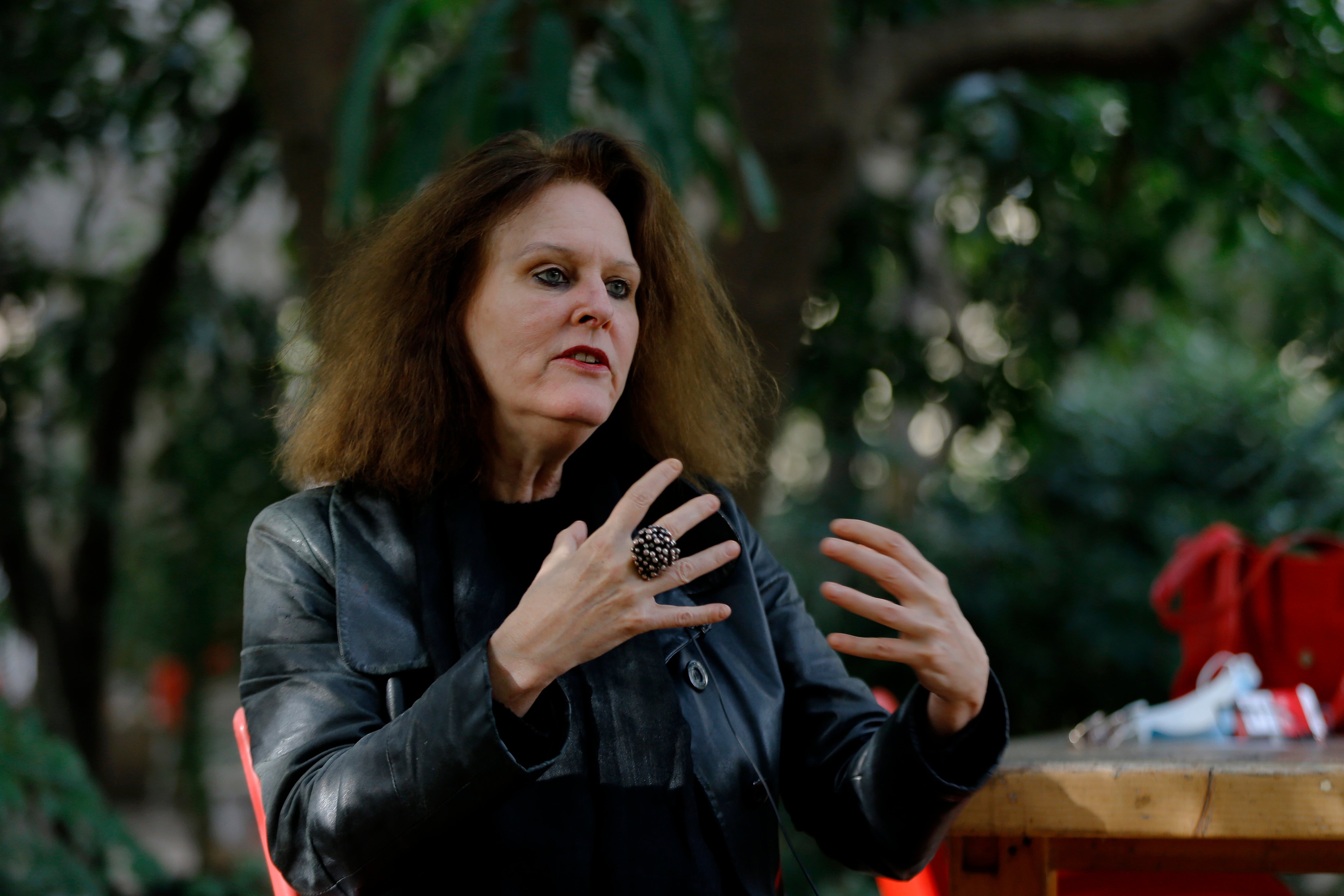Wife: No signs of torture on body of slain Hezbollah critic
The wife of a well-known Lebanese critic of the militant Hezbollah group killed last week says there was no sign of torture on her husband's body

Your support helps us to tell the story
From reproductive rights to climate change to Big Tech, The Independent is on the ground when the story is developing. Whether it's investigating the financials of Elon Musk's pro-Trump PAC or producing our latest documentary, 'The A Word', which shines a light on the American women fighting for reproductive rights, we know how important it is to parse out the facts from the messaging.
At such a critical moment in US history, we need reporters on the ground. Your donation allows us to keep sending journalists to speak to both sides of the story.
The Independent is trusted by Americans across the entire political spectrum. And unlike many other quality news outlets, we choose not to lock Americans out of our reporting and analysis with paywalls. We believe quality journalism should be available to everyone, paid for by those who can afford it.
Your support makes all the difference.An independent autopsy revealed no signs of torture on the body of a well-known Lebanese publisher and vocal critic of the Shiite militant Hezbollah group shot dead in his car last week, his wife said Monday.
Lokman Slim, a 58-year-old political activist and commentator, was found dead with six bullets in his body Thursday on a deserted rural road in the country's south. He was visiting friends there and was due back in Beirut late Wednesday when his family reported him missing.
Slim's family has expressed skepticism that a national investigation would lead to those who killed him, citing a history of unresolved assassinations and political crimes in Lebanon. They hired a private forensic pathologist to carry out their own examination of Slim's body.
Monika Borgmann, Slim's German wife who also has Lebanese citizenship, said a private autopsy was necessary to get all the needed information.
There was speculation in Arab media that Slim may have been tortured before he was shot. The circumstances of his killing remain unclear and Borgmann said a full autopsy report wasn't yet ready.
Borgmann has called for an international investigation, saying she has suspicions but no proof that his killers were members or supporters of Hezbollah.
“It is very clear who his enemies are," Borgmann told The Associated Press in an interview Monday. “It is mainly Hezbollah but for me it is not enough to say we know his enemies and that is it."
“I really want to find out. I want to know why. I want to know who and I want an international investigation,” she said.
Borgmann said she is discussing with lawyers and friends ways to push for an international investigation, joining other Lebanese calling for similar investigations into other unsolved crimes. As a German citizen, she said, she is also looking into whether she can launch an investigation in Germany.
Hezbollah condemned Slim’s killing, calling for a swift investigation and urging security agencies to combat crimes it said have spread around Lebanon. Hezbollah said such assassinations have been “exploited politically and by the media at the expense of security and domestic stability” — a jab at their accusers.
Perpetrators of political violence or corruption are almost never identified or prosecuted in Lebanon.
An investigation into a massive explosion in Beirut port last August has barely gotten off the ground and was stalled because of political pushback from powerful officials who were charged with negligence. This has also raised calls for an international probe into the explosion that killed 211 people.
“No local investigation has brought any justice,” Borgmann said. “This cold-blooded murder will not pass like this. I will do whatever I can.”
Slim’s killing led to international condemnation and calls for a swift investigation.
On Monday, U.S. Ambassador Dorothy Shea met with Lebanon’s caretaker Justice Minister to discuss the investigation into Slim’s killing and the need to hold those responsible accountable, the U.S. Embassy said without elaborating.
Slim and Borgmann, a couple of 20 years, documented stories of disappeared, prisons and national trauma in Lebanon and Syria, producing films, art shows and keeping an elaborate archive of Lebanese and Shiite history.
Slim, a Shiite, was a harsh critic of Hezbollah’s grip on power in Lebanon and its alliance with Iran. He campaigned for more representation in Lebanese politics but to his critics, mostly Hezbollah supporters, Slim was a traitor who invited Israel’s intervention or military operations in Lebanon.
Slim had reported receiving threats before, including having posters calling him a Zionist pinned to the walls of his home in a southern suburb of Beirut, Hezbollah's base in the capital.
“I can’t tell you why he was killed now ... (that is) another reason why I would like to see an international investigation,” Borgmann said, sitting in the garden of Slim’s family home. The dwelling also houses the research and documentation center the couple founded together in 2005.
Borgmann said she has no plans to leave the country and will continue the work she and Slim did together to preserve Lebanon’s history and memory.
Borgmann said she was saddened but also angered by her husband's killing. “It is in the end ... the anger which helps me to move forward,” she said.
A memorial and burial ceremony were planned for Thursday in the family home where Slim was born and which he refused to leave even after Hezbollah set up its headquarters in the neighborhood.